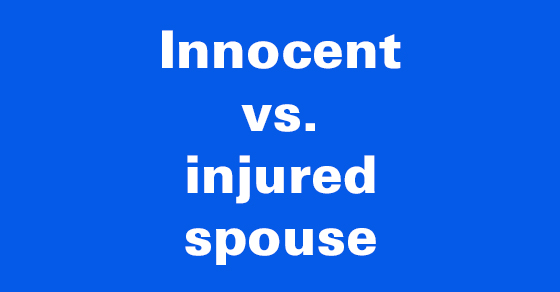Taxpayer prevailed, in spite of using wrong form
A taxpayer who intended to file for innocent spouse relief (available when a joint filer claims no liability for items on a tax return), instead filed Form 8379, “Injured Spouse Allocation” (used when a joint filer loses all or part of a refund due to the spouse’s debts). The IRS and the U.S. Tax Court rejected her claim. But the 9th Circuit Court of Appeals found that she met the requirement of the “informal claim doctrine” and, therefore, her innocent spouse relief claim was timely filed.






